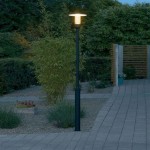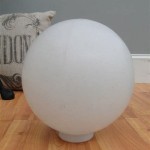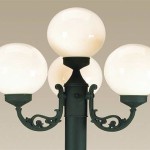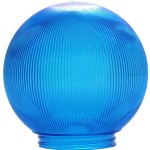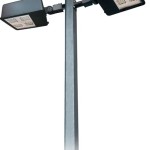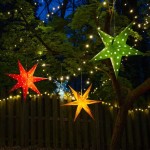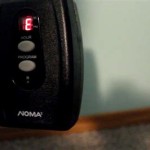What Cable To Use For Outdoor Security Lights
Outdoor security lights play a crucial role in enhancing home security and illuminating outdoor spaces. Choosing the right cable for your outdoor security lights is essential to ensure proper functionality, safety, and longevity. This article will delve into the key considerations when selecting the appropriate cable type for your outdoor security light installation.
Cable Gauge
The gauge of the cable determines its thickness and carrying capacity. Higher gauge numbers indicate thinner wires, while lower gauge numbers represent thicker wires. The appropriate gauge depends on the wattage of the security light. Generally, security lights range from 50 to 500 watts. For lower-wattage lights, a 14-gauge cable may suffice, while higher-wattage lights require a 12-gauge or even 10-gauge cable to handle the electrical load without overheating.
Here's a general guideline for cable gauge selection:
- 50-150 watts: 14-gauge cable
- 150-300 watts: 12-gauge cable
- 300-500 watts: 10-gauge cable
Cable Insulation
Outdoor cables are exposed to elements like rain, snow, and extreme temperatures. Therefore, the insulation of the cable is vital to ensure its safety and prevent electrical hazards. Common types of cable insulation for outdoor security lights include:
- THHN (Thermoplastic High Heat-Resistant Nylon): This insulation is commonly used for outdoor applications due to its superior heat resistance, moisture resistance, and durability.
- XHHW (Cross-Linked High Heat-Resistant Wire): XHHW cable is designed for even higher temperatures than THHN and is particularly well-suited for locations where heat dissipation is a concern.
- UF (Underground Feeder): UF cable is specifically designed for underground installations, offering excellent resistance to moisture and soil corrosion.
When selecting cable insulation, consider the specific climate conditions and potential hazards in your area. If your region experiences extreme temperatures, high humidity, or frequent rain, choosing a cable with superior weather resistance, such as XHHW or UF, is recommended. For milder climates, THHN insulation might be sufficient.
Cable Jacket
The cable jacket provides additional protection against abrasion, sunlight, and other environmental factors. It typically consists of a protective outer layer that enhances the cable's durability. Some common cable jacket materials include:
- PVC (Polyvinyl Chloride): PVC is a widely used jacket material known for its durability, affordability, and resistance to moisture.
- XLPE (Cross-Linked Polyethylene): XLPE offers superior heat resistance and chemical resistance compared to PVC, making it an excellent choice for high-temperature applications.
- TPE (Thermoplastic Elastomer): TPE is a flexible and durable material that provides excellent resistance to UV radiation and chemicals. It's often used in outdoor applications where exposure to sunlight is a concern.
The choice of cable jacket depends on the specific environmental conditions and the level of protection required. If the cable is exposed to direct sunlight, a UV-resistant jacket like TPE is recommended. For general outdoor use, PVC or XLPE jackets are suitable options.
Cable Installation and Safety
Proper installation of the cable is crucial for safety and optimal performance. Here are some key considerations:
- Direct Burial: If the cable is buried underground, use UF cable specifically designed for this purpose. Ensure the cable is buried at least 18 inches deep to protect it from damage and weather.
- Surface Installation: When installing the cable on the surface, secure it with cable clips or ties to prevent sagging and damage. Ensure the cable is routed away from high-traffic areas and potential hazards.
- Junction Box: Use a weatherproof junction box to connect the cable to the security light fixture. The junction box must be properly sealed to prevent moisture intrusion.
- Grounding: Ground the cable to ensure proper grounding for the security light fixture. This helps to prevent electrical shocks and protects the circuitry from damage.
Always consult with a qualified electrician for professional installation of outdoor security lights. Improper installation can lead to electrical hazards and void any warranties on the lights or components.

How To Wire A Floodlight
Quick Question Re Outdoor Security Light Wiring Scoobynet Com Subaru Enthusiast Forum

Installing A Motion Sensor Light Fine Homebuilding
Quick Question Re Outdoor Security Light Wiring Scoobynet Com Subaru Enthusiast Forum

Monument 180 Degree White Motion Activated Outdoor Integrated Led Portable Plug In Security Spot Light G14276 Wh The Home Depot

Dey 20w Led Motion Sensor Outdoor Light 6000k Plug In Security Lights 2 Adjustable Heads Ip65 Waterproof Wall Lamp Com

Solar Motion Sensor Light Outdoor 320 Bright Cob Led 16 4ft Cable 3 Chimiya

Best 55w Motion Sensor Led Security Light Olafus

Onforu 5 Heads 55w Led Security Lights Motion Outdoor Bd76

Security Flood Light Motion Sensor Adapter Kit
